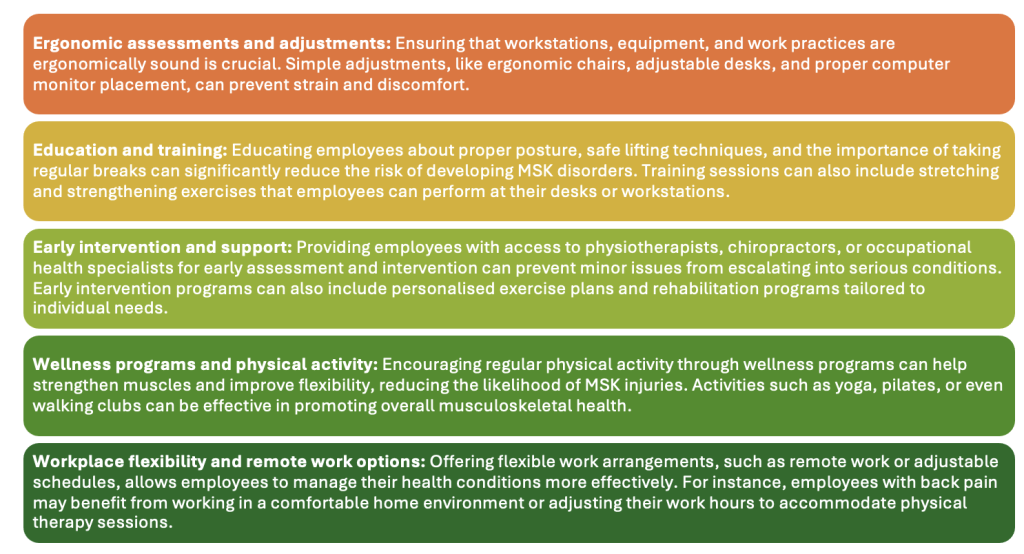Preventing Pain, Promoting Productivity: How MSK Health Initiatives Can Transform the Workplace
Workplace absenteeism is a significant concern for organisations worldwide, impacting productivity, employee morale, and overall business performance. In the UK alone, work-related musculoskeletal (MSK) disorders are a major contributor to absenteeism. According to the Health and Safety Executive (HSE), MSK disorders accounted for 27% of all work-related ill health cases in 2022, leading to an estimated 7.3 million lost working days due to work-related MSK issues.

Conditions affecting the muscles, bones, and joints, such as back pain, arthritis, and repetitive strain injuries, can lead to chronic pain, reduced mobility and significant time away from work.
With MSK disorders being one of the leading causes of absenteeism, proactive MSK health programs can be a game-changer in reducing these rates and enhancing employee wellbeing. Let’s explore how these initiatives work and why they are so effective.

Benefits of Proactive MSK Health Programs
Implementing proactive MSK health programs can have numerous benefits for both employees and organisations:
1. Reduced absenteeism: By addressing the root causes of MSK disorders and preventing their onset, organisations can significantly reduce the number of days employees take off due to pain or discomfort. This leads to more consistent attendance and productivity.
2. Improved employee wellbeing: Employees who participate in MSK health programs often report better overall health, less pain and greater job satisfaction. When employees feel supported and valued, they are more likely to be engaged and committed to their work.
3. Enhanced organisational performance: Healthier employees mean a more productive workforce. Reduced absenteeism, coupled with increased morale and engagement, leads to improved organisational performance and a positive workplace culture.
Conclusion
Investing in proactive MSK health programs isn’t just about preventing injuries—it’s about building a stronger, more resilient workforce. By tackling absenteeism, improving employee wellbeing, and fostering a culture of health and engagement, these programs become more than just an employee benefit; they are a strategic asset. So, take the step towards a healthier workplace today. Empower your team, enhance productivity, and watch as your organisation thrives. By making these changes, you’re not just addressing today’s challenges—you’re preparing your organisation for a healthier, more productive future.



